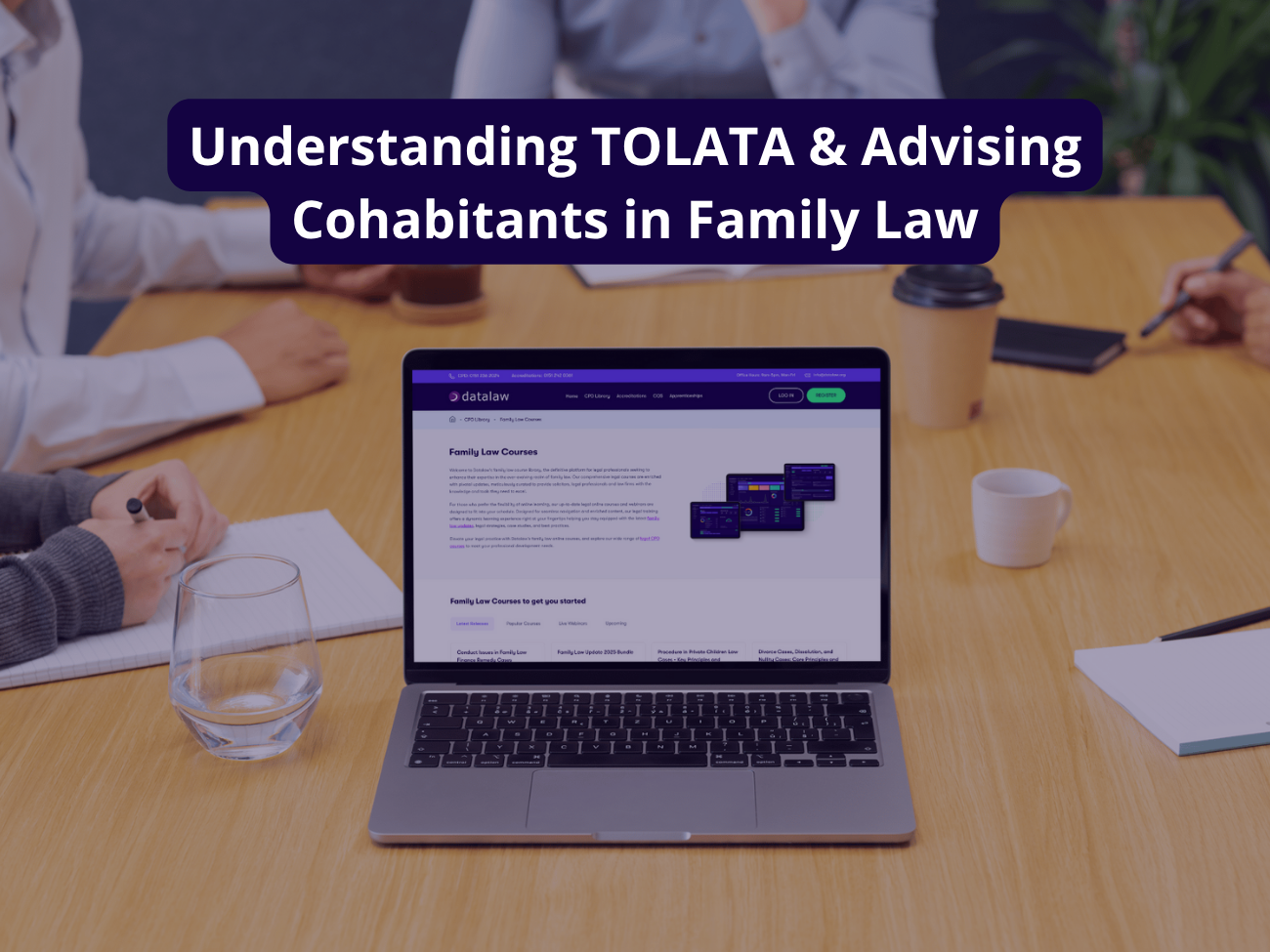Cohabitation disputes can be legally complex, particularly when it comes to property and financial claims. The Trusts of Land and Appointment of Trustees Act 1996 (TOLATA) plays a crucial role in resolving property disputes between cohabitants. For family law practitioners, understanding the intricacies of TOLATA is essential for effectively advising clients and ensuring fair outcomes in property ownership conflicts.
Download our Free “Family Law Update Bundle 2025” Brochure
What is TOLATA?
TOLATA governs disputes over land ownership and trusts of land. It allows individuals, including cohabiting couples, to claim an interest in property even if they do not hold legal ownership. This is particularly relevant when property ownership is disputed, such as cases where one party contributed financially but is not named on the title deeds.
Under TOLATA, courts can declare ownership interests, order property sales, and determine individual rights to occupy a property. Practitioners who grasp these provisions can build strong cases and achieve fair results for their clients.
Key Legal Considerations in TOLATA Claims
Cohabitants seeking property claims under TOLATA must prove a beneficial interest in the property. They often need to show contributions towards the purchase, mortgage payments, or significant property maintenance costs. Courts assess express and implied trusts to determine ownership agreements and implied interests. Proprietary estoppel may also apply if one party believed they had a stake in the property and acted accordingly. Lawyers must carefully differentiate between legal and beneficial ownership in cohabitation disputes.
The Role of Schedule 1 Children Act 1989 in Cohabitation Disputes
For cohabitants with children, the Schedule 1 Children Act 1989 provides another legal route for financial claims. This legislation enables courts to grant financial provisions for children, including maintenance and housing. Family law practitioners must consider both TOLATA and Schedule 1 claims when advising cohabitants to ensure children’s financial needs are met.
Key Case Law in Cohabitation Disputes
Understanding key case law is essential for legal professionals handling TOLATA cases. Courts rely on landmark decisions to assess property disputes and beneficial interests. Lawyers who stay informed about relevant case law can advocate more effectively for their clients.
Procedural Rules & Representation Strategies
Managing TOLATA and Schedule 1 claims requires a strong grasp of civil procedure rules. Practitioners must follow court protocols, set realistic client expectations, and develop effective representation strategies. Alternative dispute resolution (ADR) methods, such as mediation and negotiation, can help resolve disputes without lengthy litigation. Advising clients on ADR options is an essential skill for modern family law practitioners.
Enhancing Expertise with Family Law Training
To stay updated with the latest developments, Datalaw’s family law course offers comprehensive training on TOLATA and Schedule 1 claims, equipping solicitors with the skills to handle complex cohabitation disputes effectively. The course covers legal principles underpinning TOLATA claims, practical case law applications, civil procedure essentials for cohabitation disputes, alternative dispute resolution techniques, and strategies for managing client expectations.
To gain a deeper understanding of TOLATA and cohabitation disputes, family law practitioners can enroll in Datalaw’s ‘Advising Cohabitants and Cases under TOLATA and the Children Act 1989’ for expert guidance and essential insights to succeed in this area of law
Discover more of our Legal Updates.



